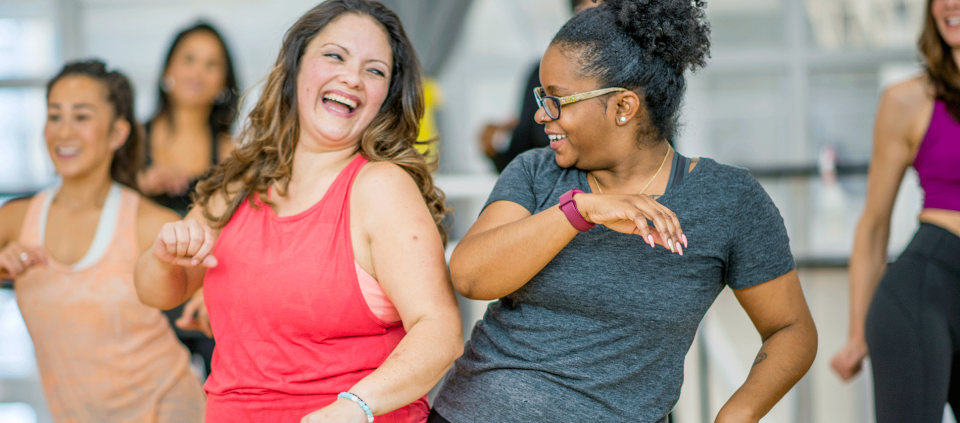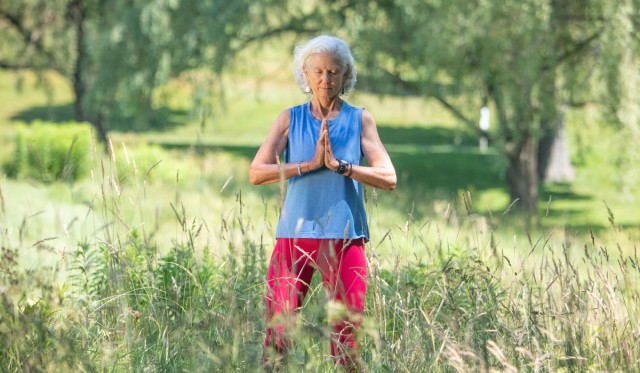Finding Meaning in Midlife

In this Q&A, clinical psychologist and Kripalu faculty member Maria Sirois, PsyD, talks about the challenges and opportunities of midlife—and how mindfulness can make all the difference.
Can practicing yoga and meditation help us live longer, healthier lives?
Research shows that people who practice mindfulness, yoga, and positive psychology on a regular basis have greater physical immunity and live longer. These tools and practices have a very positive, very deep impact on our health, longevity, and well-being, no matter what age we are. A Harvard study showed that genetic expression literally looks different in people who regularly engage in practices, like yoga and meditation, that elicit the relaxation response. When compared to those who don’t practice, they showed significant changes in the expression of the genes linked to immunity and longevity. Positive psychology researchers like Sonya Lyubomirsky and Barbara Fredrickson have also done studies showing that people who practice positivity have better physical health and longer life spans.
We all know the phrase “midlife crisis.” What makes midlife such a challenging stage?
There tends to be a plethora of stressors around this time—physical health, relational well-being, changes in marital status, children leaving for college, aging parents, work transitions. These are all normal milestones, but they’re stressful. Career-wise, people often begin to wonder, Is this all there is? What should I be doing with the time I have left? Have I done enough to create financial security for myself and my family for the next 30 or 40 years? How do I create a life that’s full and meaningful?
One man told me that, when his first marriage fell apart when he was in his early 30s, he went out and bought a motorcycle. Now that he’s in his 50s and his second marriage is falling apart, he realized a motorcycle isn’t going to help. So he came to Kripalu to start exploring what he really wanted and needed. In midlife, we still have the opportunity to begin to craft a life from the inside out.
How do we do that? What tools can we use to navigate this phase?
The foundational tool for building greater happiness, enhancing physical well-being, and creating a full, rich life is mindfulness. It doesn’t matter what form of mindfulness practice you do—yoga, qigong, mantra or metta meditation, prayer. They’re all about building self-compassion and awareness of the present moment, and quieting the negative self-critiquing voice, so we can begin to make choices that help us live in a way that feels authentic, creative, and meaningful. That could be anything from making changes in the way we eat to taking the next step toward our big dreams.
How do you define a “meaningful life”? Do we have to do something big and important in order to create meaning in our lives, or can we find meaning in the small, everyday things?
People want to live a life of purpose, but they often don’t know what that looks like or how to go after it. There are two ways in which we can amplify the sense of meaning and significance in our lives. One way is to follow the trail of what we love and are passionate about, which might be as simple as volunteering an hour a week at a local animal shelter, or as big as connecting with an international organization that feeds hungry children and working toward the goal of being hired by them.
The other way is to see your life with different eyes, to bring a sense of sacredness and significance to your life as it is right now. As a partner, colleague, teammate, or parent, you can mindfully tune back in to the sense of significance you had when you first made the choice to get married, have kids, or start a particular career—before you began to take any of it for granted.
These two paths are not mutually exclusive; in fact, they often nourish each other. One way to begin to uncover a passion you want to pursue is to bring more appreciation and awareness to the life you’re already living. And vice versa—feeding hungry children in Afghanistan can create an appreciation of the life you have now. Either way, becoming more present in your life will remind you of who you are, your gifts and strengths, and your dreams—and the wonderful part is that there’s still time to fulfill those dreams.
